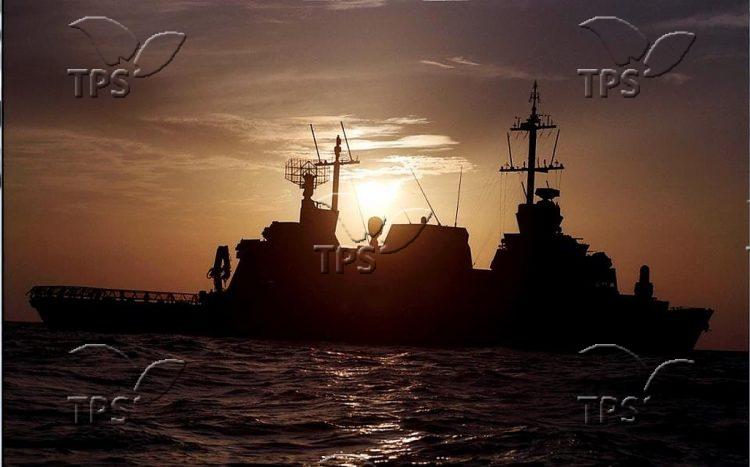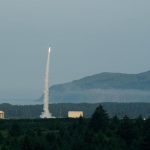Houthi Hijacking an Iranian Threat to Global Shipping
Jerusalem, 22 November, 2023 (TPS) -- The Houthi hijacking of Japanese-operated, British-owned cargo ship Galaxy Leader in the Red Sea on Nov. 19 represents a significant escalation by the Iranian terror axis.
The ship, partially owned by Israeli businessman Rami Ungar, has no Israeli nationals aboard and was traveling from Turkey to India. Its 25 crew members are being held in Yemen.
The hijacking is a clear demonstration of Iran’s attempt to extort the international community by holding a symbolic gun, via Tehran’s Houthi proxies, to the Bab-el-Mandeb Strait.
The strait, a strategic chokepoint in the Red Sea, is of vital importance to global shipping, especially for the transportation of oil and natural gas. Around 9% of all seaborne crude oil and refined petroleum passes through the strait. Any threat to this passage directly impacts global energy security and market stability.
Iran’s use of the Houthi militia in Yemen as a proxy to threaten shipping is not a new development. The Houthis seized a UAE-flagged cargo vessel in January 2022, and attacked a Saudi-flagged oil tanker in 2018.
The latest incident should be viewed within this broader context of Iran’s regional ambitions, which often involves actions through proxy non-state actors, such as Hezbollah in Lebanon, Shi’ite militias in Syria and Iraq (which have launched dozens of attacks on United States military bases in the region since Oct. 7).
The Israel Defense Forces called the hijacking a “very grave incident of global consequence” on Sunday. Similarly, Japan’s condemnation of the hijacking highlights international concern for the future international shipping in the region.
According to Professor Shaul Chorev, head of the Haifa Research Center for Maritime Policy and Strategy at the University of Haifa, out of 25% of Israel’s trade with the far east, 7% passes through Eilat Port (with the remainder transiting the Haifa and Ashdod ports via the Suez Canal). As such, the Houthi attack is also designed to overshadow Israeli trade via the Red Sea.
The presence of international sea powers in the vicinity, including the United States, United Kingdom, France, China and India, is a testament to the global importance of this region for maritime commerce and the ongoing efforts to combat the Houthi threat.
The Houthis’ claim that the vessel was Israeli and their threat to target Israeli-linked ships in international waters can be interpreted as an extension of Iran’s multi-faceted threat, targeting Israeli, regional and global trade. Meanwhile, Iran’s Lebanese proxy Hezbollah and other proxies in Syria continue to fire projectiles at Israel.
The downing of an American Reaper drone by the Houthis on Nov. 8, and the subsequent actions by the U.S. Navy against projectiles and drones originating from Yemen further illustrate the increasing tension between the Iranian terror axis and the U.S.-led regional bloc.
Iranian Supreme Leader Ayatollah Ali Khamenei recently stressed what he described as readiness of the “resistance” forces to launch a coordinated attack against Israel.
On Tuesday, the White House National Security Council said it is considering the re-designation of the Houthis as a terror organization. This re-evaluation stems from the Houthis’ targeting of civilians and piracy in international waters, actions that are increasingly being linked to Iran’s broader strategic objectives.
U.S. President Joe Biden’s 2021 decision to remove the Houthis from the terror designation list was described by Washington at the time as a humanitarian gesture, aimed at facilitating aid to civilians in Yemen. However, the recent actions of the Houthis, likely at the behest of Iran, have forced a reassessment of this position.
As such, the hijacking should not be seen as an isolated act of maritime piracy. It is a calculated Iranian move to hold international shipping and the energy market hostage and apply pressure on the international community, to try and reduce support for Israel.
The incident underscores the need for a coordinated international response to counter Iran’s escalating use of proxy warfare. The security of global maritime commerce, particularly in strategically important regions like the Red Sea, is of paramount importance, and the international community must address this growing menace.







